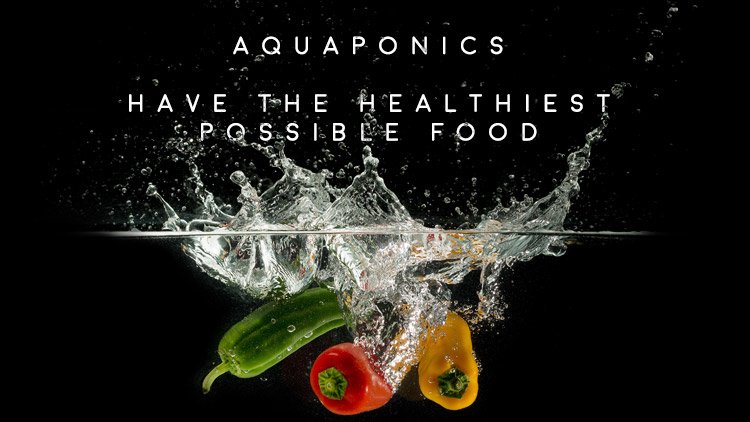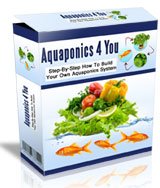
What is Aquaponics and How does it Help You to Have the Healthiest Possible Food?
Aquaponics can be very beneficial for the farmers, the planet, and our health. Read on to find out what it is, how it provides healthy food. And how it can help you save money, water, gas, energy, and land.
Aquaponics is the branch of science that combines aquaculture and hydroponics. To be lucid, it is a scientific system of farming plants and fish. This system mixes in a mutually profitable cycle. In aquaponics, one grows the plants and fish together. The fish wastes provide sources for the growing flora. On the other hand, the plants act as a natural filter for the water where the fish live in. Aquaponics creates a planet-friendly eco-system where both the fish and plants can easily thrive. The fish farmers widely accept aquaponics. That is since this whole natural process lets them get rid of nutrient-rich water. On the other hand, the hydroponics growers look for nutrient-rich water.
How does Aquaponics Work?
Aquaponics is a rich mix of aquaculture and hydroponics. And both of them have some cons. Hydroponics needs costly nutrients to feed the plants. Further, it also needs periodic flushing of the entire system that can lead to waste disposal problem. On the other hand, re-circulating aquaculture requires removal of excess nutrients from the system. That is to say, removal of a certain percentage of water on a daily basis.
Nutrient-rich water then one needs to remove it and replace it with fresh water. Re-circulation of both aquaculture and hydroponics are a great way of farming fish and vegetables. And when you can combine them both, their cons turn into pros. With aquaponics, you can retain the positive sides of both hydroponics and aquaculture. On the other hand, you can remove entirely the negative ones. Aquaponics is a simple (or complex depending on how you use it) process. In the process, one extracts water and other nutrients from the plants for their growth. Thus leaving behind clean water for the fish to survive. There are bacteria on the surface of grow bed media. These bacteria help in the nitrogen cycle. It is the process that transform ammonia wastes from the fish into nitrates that are vital for plants’ growth.
What Plants can You Grow with Aquaponics?
There were tests done to check the efficiency level of aquatic plants in intake of nutrients from aquaculture water. And thus to make the water clean and purified for the fish in the aquaponics system. As the research continued, researchers tested terrestrial plants. And they proved that they purify water for aquaculture. And thus making the water perfect hydroponic solution for farming plants. Leafy plants like chives and lettuce were first tested for aquaponics. However, scientists, as well as market growers, have found success with many other crops. These include cucumbers, peppers, tomatoes, melons, broccoli and other crops.

Which Fish can You Raise?
Tilapia – the freshwater fish – grows fast and is fleshy while filleting. This fish is mostly grown in an aquaponics system. This fish is springy enough to endure a wide array of water conditions. Other fish like bass, brim, crappie, goldfish, carp, and koi are also grown in aquaponics. All of these fish are good to eat and preferred by the households. And since aquaponics ensures pesticide-free farming, you can think about home fish production. But before that, you can contact a local agency that oversees fish. That way you will know whether is there any restriction related to which fish one can grow.

What are the Benefits of Aquaponics?
Benefits for the Planet
- Water saving. The system uses about 90 percent less water than regular farming. Water, as well as nutrients, are recycled in a closed-loop technique ensuring saving of water.
- Protection of water bodies. With aquaponics, no harmful fertilizer or pesticide runoff into the water takes place. In a typical method, to maintain nutrients rich soil, farms often need to use fertilizers. And those excess fertilizers flow into the rivers causing water pollution.
- Saving of gas. The local community typically serves aquaponics products without requiring miles of traveling. And this way it lessens gas emission and finally conserves gas.
- Saving of energy. Aquaponics requires less energy loss than old farming. The energy needed for running the system is electrical. So, you can use other energy resources to power your farm. These include wind or solar.
- Saving of land. Aquaponics grows 6 times more every square foot than typical farming.
- Saving money. What’s more, one can turn aquaponics system in abandoned warehouses. In other words, in a structure that already exists. Thus, you can save more money as well as other valuable resources.
Health Benefits
- Fertilizers used come from cold-blooded, freshwater fish that don’t carry harmful Salmonella or E.coli bacteria. On the other hand, OTC, common fertilizers from warm-blooded animals do carry this bacteria.
- Plants in aquaponics system have no medicine and no fluoride.
- Fish convert plant protein into animal protein fast.
- The products of aquaponics taste much better than the foods in the grocery stores. This is since one grows aquaponics items locally. So, you do not need to ship or store them for a longer period. Aquaponics products are fresher and healthier than that of those available in the market.
- To grow fish in aquaponics, you do not need to use mercury, growth hormones or medicines. This makes aquaponics a great source of healthy and free of chemicals food.
Farming Benefits of Aquaponics
- The system grows at least 6 times more per square foot than typical farming.
- Aquaponics requires almost 90% less water than typical farming.
- With the system, farmers can grow fish at any time of the year regardless of weather and location.
- it need less pesticide. One can grow the system indoors.
- Farmers do not need to do the dull job of weeding.
- Farmers do not need fertile land for aquaponics. You can do it on gravel, sand and even rocky surfaces that otherwise one can never use for regular farming.
Here is a video that shows how it could look like as a home basement project:
To Wrap It Up
Do you now see how aquaponics can be beneficial for the farmers, the planet, and our health? If you find it interesting, you can learn more about how to start your aquaponic setup here.
If you have any knowledge in this field, please feel free to share your thoughts in the comments part below. And don’t forget to share this post with your farm friends on the social networks.
Creator of the Juicing For Your Manhood programs and the #1 men’s health blog Olivier Health tips main editor. He has developed a new passion for juicing and has done a lot of experiments with foods possessing healing properties. His mission is to teach men to reinvigorate their lives using the power of juicing.
If you like this post, I invite you to click on the red bell icon located in the lower right corner to receive notifications when I publish new articles.
If you have questions for me, you can subscribe to my newsletter and send me an email by replying to the newsletter that you will receive.














